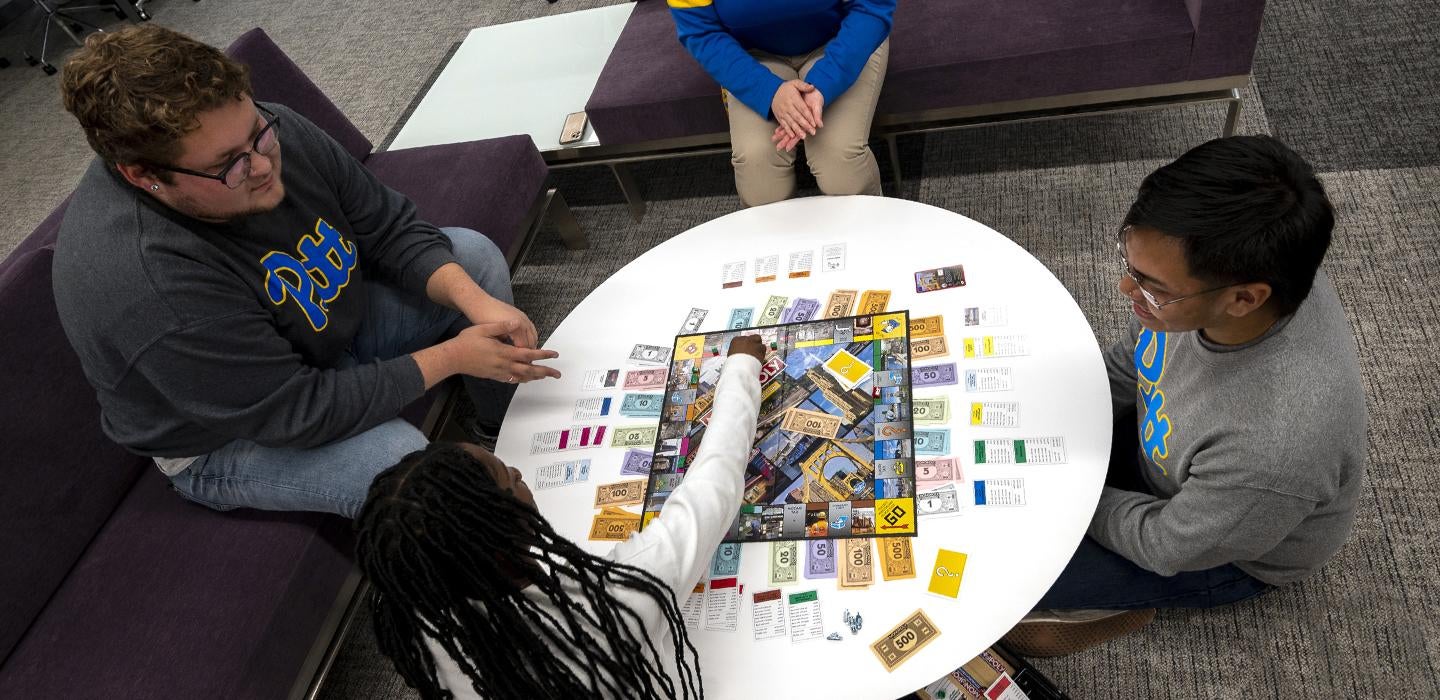
Subscribe to Pittwire Today
Get the most interesting and important stories from the University of Pittsburgh.For the bargain price of $320, you could buy the deed to Pitt — in Monopoly money, that is. The University’s Cathedral of Learning is one of the notable sites featured in Monopoly's newly released Pittsburgh-themed edition.
Pittsburgh is the ninth city in the U.S. to receive the Monopoly treatment. In February 2022, the makers of the game, Hasbro, in partnership with Top Trumps USA Inc., asked Pittsburghers to submit their suggestions for the essential Pittsburgh landmarks and restaurants deserving of a spot on the game board. Mt. Washington, the National Aviary and Point State Park also made the list, among other mainstays.
“Similar to the pleasure we get when seeing iconic landmarks destroyed in disaster movies, we love to buy and sell local landmarks and lord them over our friends in these localized versions,” said Zachary Horton, a game studies scholar and assistant professor in film and media studies in the Kenneth P. Dietrich School of Arts and Sciences.
Pitt is not just represented in the game’s property holdings; a lucky player can draw the Pitt-themed Community Chest card that reads, “You’ve reinvented yourself by graduating from the University of Pittsburgh! Congratulations and forge ahead. Collect $200.”
Horton offered his insights on the history and Americans’ enduring appreciation of the game.
“Monopoly remains a mainstay because it reflects the tension in our society between striving and achievement, between the promise of prosperity and the reality of poverty. It is one of the most ruthless games there is, where the rich get richer, and the poor usually have no way out but to keep trying,” Horton said.
For the uninitiated: Monopoly is a game of strategy where players vie to build real estate empires by acquiring properties and utilities with the ultimate goal of bankrupting their opponents.
Though the game we know today is a celebration of financial dominion, Monopoly was based on an anti-capitalist board game called The Landlord’s Game that debuted in the early 1900s.
“The Landlord's Game included explanatory cards that explained how capitalism worked, included provocative quotes about the extraction of capital from rents, and generally highlighted the system’s inequities,” Horton said.
Charles Darrow, the man behind Monopoly, created his own version of The Landlord’s Game, eliminating its anti-capitalist details.
Darrow’s invention was patented in 1935 during the Great Depression and showcases properties named after locations in or near Atlantic City, New Jersey. Today, Monopoly is the best-selling privately patented board game in history.
A group of Pitt Pathfinders recently played a round of the Pittsburgh-themed game, and their reaction was of enthusiasm and pride.
“Growing up, I always loved playing Monopoly. On a rainy day, it was the one thing that would boost my spirit,” said Sean Ramos-Izquierdo, a senior psychology major. “Having my comfort game come together with my favorite place is a dream come true.”
Those interested in purchasing the game can find it at The University Store on Fifth.
— Nichole Faina, photography by Tom Altany


